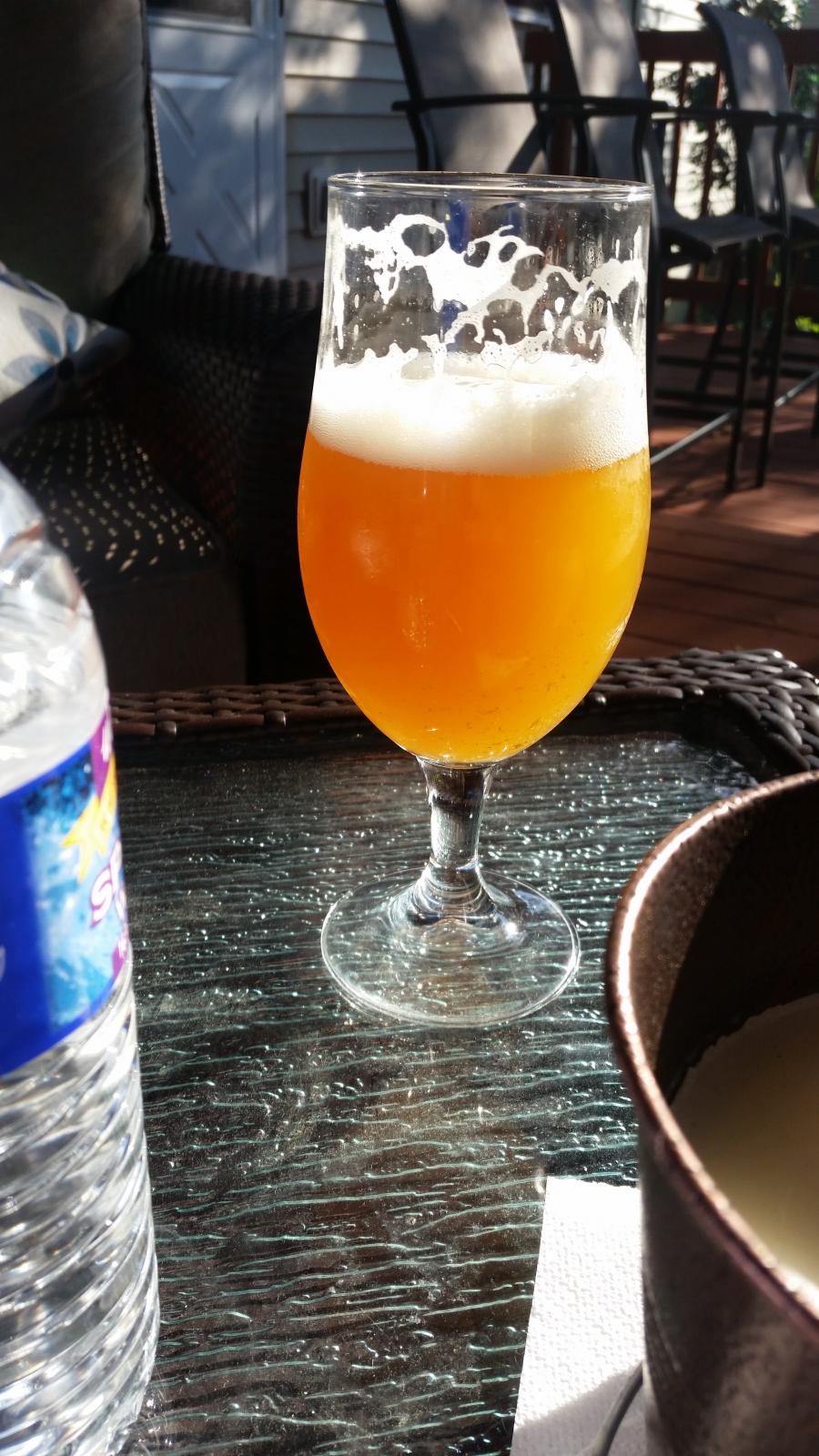Hey all! Figured I'd jump in and post what I have landed on after tweaking my recipe over the last few months.
Northeastern IPA with Conan X WLP644 hybrid
10 gallons packaged (about 11.75 gallons post boil)
OG 1.064
62% Pearl malt
28% German wheat malt
3% Naked oats
7% Roller oats
FWH
1 oz Simcoe
1 oz X331 experimental hop
(about 40 IBUs calculated)
Whirlpool
3 oz Simcoe 170° f 30 minutes
3 oz X331 experimental hop 170° f 30 minutes
(with my electric system I can hold temp at set point)
Chill to 64°f, 11 gallons split into two carboys pitched pitch 1200ml decanter starter of F1 Conan X WLP644 hybrid (hybrid, not a blend) into well oxygenated wort. Set the follow fermentation schedule on 2 individually STC1000+ in dorm fridges for each carboy.
Ramping between
66°f to 70°f over 72 hours >
70°f to 75° over 96 hours
*3 oz Galaxy dry hop 7.5 days in primary just after high krausen started to fall (2.5 days after pitching yeast)
Co2 purged, closed transfer
5 oz Galaxy spilt keg hopped in weighed hop sacks one week at room temp then chilled to serving temp and left in for the duration of the kegs life.
FG 1.009 grain to glass 10 days.
I brewed a few batches with Conan and was happy with the results as it was pleasantly fruity but even with a low mash temp it left too much residual sugar/sweetness for my liking.
I haven't read every post in this thread so forgive me if the yeast has been discussed for this style:
With the hybrid cross of Conan and Sacc. Trois WLP644 we have a fast starting, higher attenuating, super fruity, non-phenolic yeast with decent mouth feel = best of both worlds in a single strain! I'm super critical of my beers and always can find a flaw but not this one, hands down the best beer I've brewed since first home brewing 10 years ago and it is, as with most beer, the yeast!
If you want to learn more about the Conan X WLP644:
https://www.homebrewtalk.com/showthread.php?t=577066










































![Craft A Brew - Safale S-04 Dry Yeast - Fermentis - English Ale Dry Yeast - For English and American Ales and Hard Apple Ciders - Ingredients for Home Brewing - Beer Making Supplies - [1 Pack]](https://m.media-amazon.com/images/I/41fVGNh6JfL._SL500_.jpg)
















